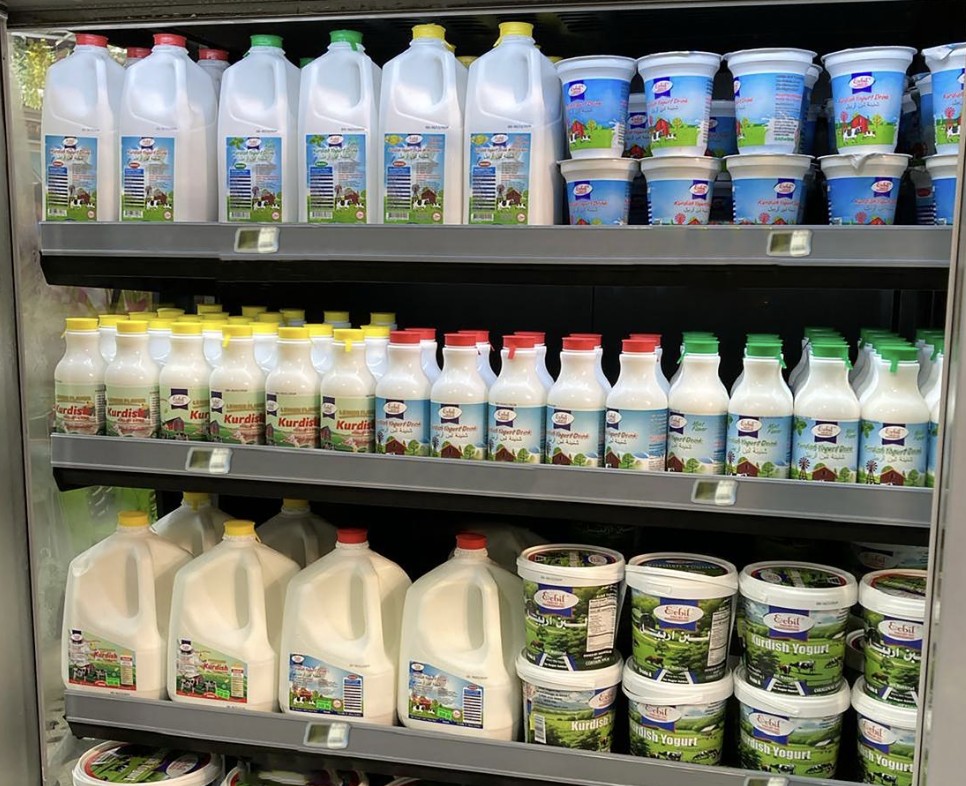The relationship between the Kurdistan Region of Iraq (KRI), particularly the Kurdistan Regional Government (KRG), and China has been evolving significantly in recent years. This relationship, largely driven by economic interests, reflects broader geopolitical shifts and the growing influence of China in the Middle East. This article unpacks several key developments that highlight how China has increased its engagement with Iraq and the KRI.
Support during the pandemic: The Covid-19 pandemic played a crucial role in strengthening China’s presence in the Middle East, including Iraq and the KRI. China supplied vaccines and medical supplies to the region, garnering significant appreciation from regional officials and the public during the pandemic. This aid came at a time when concerns were heightened about a potential U.S. withdrawal from Afghanistan and northeastern Syria. Furthermore, China’s mediation efforts between Middle Eastern rivals Saudi Arabia and Iran, and other activities in the region have prompted closer relations with China.

Diversification beyond oil: Traditionally, China’s relationship with Iraq centered around oil. However, this dynamic has evolved. To be sure, the KRI’s rich oil reserves have attracted significant Chinese investment due to China’s global strategy to secure energy resources. In 2009, Sinopec acquired Addax Petroleum, which held substantial oil assets in the KRI. Similarly, the China National Petroleum Corporation has been involved in exploration and production activities in the region.
Yet, at the same time, Chinese companies are now securing contracts in various sectors, including infrastructure and development projects in the KRI. For instance, the KRG recently signed a memorandum of understanding with PowerChina International Group to construct four dams in the region. Chinese companies often outpace Western firms due to their flexibility and state-owned status, allowing them to offer more attractive deals. One notable project is the $5 billion Happy City residential and leisure development in Erbil, signaling China’s commitment to expanding its footprint in the region beyond the oil sector. Additionally, there are plans to build a Consulate General building on a 30,000-square meter plot of land.

Diplomatic relations: Before the 2000s, the relationship between the KRI and China was minimal due to the KRI’s lack of formal international recognition and its complex political status within Iraq. However, after the 2003 U.S.-led invasion of Iraq, the KRI became more stable and semi-autonomous, paving the way for increased international engagement, including with China.
China’s approach to diplomatic relations with Iraq and the KRI emphasizes respect for sovereignty and non-interference in internal politics. Chinese academics argue that China views the KRI as representative of the Kurdish people in Iraq, who are estimated to number over 6 million, and thus gives special status to the relationship. Although China does not officially recognize the KRI as a separate state, it engages with the KRG through diplomatic channels in Baghdad and directly with the KRG’s representatives. China also has good relations with the political parties in the KRI, which helps strengthen bilateral relations.
Cultural and educational exchanges: Chinese universities offer scholarships to Kurdish students, fostering better understanding and long-term relationships. Initiatives to promote Chinese culture in the KRI and Kurdish culture in China, such as language courses and cultural festivals, have also been implemented. China’s soft power strategy in the KRI includes establishing language centers, offering fellowships, and forming educational partnerships. For instance, Huawei’s Information and Communication Technology academies provide training and certification, enhancing local employment prospects. Continuous courses support public employees and institutions in performing better and making improvements in their workplaces.

Regional stability and security: China values the stability of the KRI due to its strategic location and economic potential. Ensuring a stable environment in the KRI is crucial for the safety of Chinese investments and personnel. Consistent with its broader foreign policy, China adheres to a principle of non-interference in domestic affairs, focusing on economic and trade relations while avoiding entanglement in local political conflicts.
In this context, the KRG has sought to expand trade relations with China, exporting oil and other commodities. In return, Chinese goods and services have increasingly penetrated the Kurdish market. Regular exchanges of business delegations between the KRI and China have been organized to explore further opportunities for cooperation. Despite the growth in economic engagements, the KRI has little presence or influence in China, reflecting the asymmetry in their interactions.
Future prospects: The future of the China-KRI relationship is likely to be influenced by broader geopolitical trends. China is one of the largest markets for Kurdish businessmen and traders due to its competitive prices. This trend is expected to foster exchanges and cultural engagement, increasing Kurdish interest in China for education, business, and tourism.
The KRG must continue to maintain good and beneficial relations with both China and the United States, among other countries, to ensure the region’s interests are protected. China’s involvement in the KRI is growing, characterized by significant economic and soft power initiatives. However, the relationship faces challenges, including political asymmetry, regional dynamics, and the U.S.-China global rivalry. As both sides pursue their respective interests, the relationship will likely remain complex and multifaceted. Balancing ties with both superpowers is crucial for the KRG to ensure long-term benefits while navigating the geopolitical complexities of the evolving global order.
Janghis Awakalay is an experienced international political observer and analyst with over 15 years in international relations.

